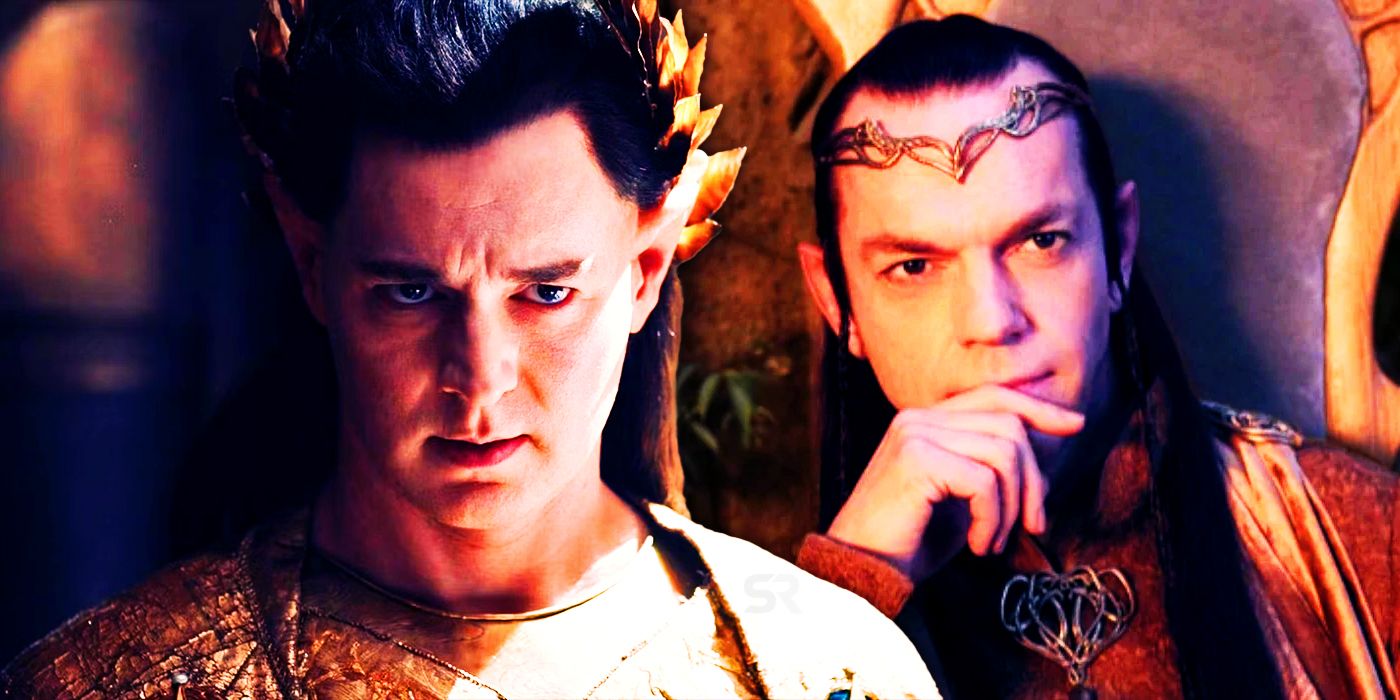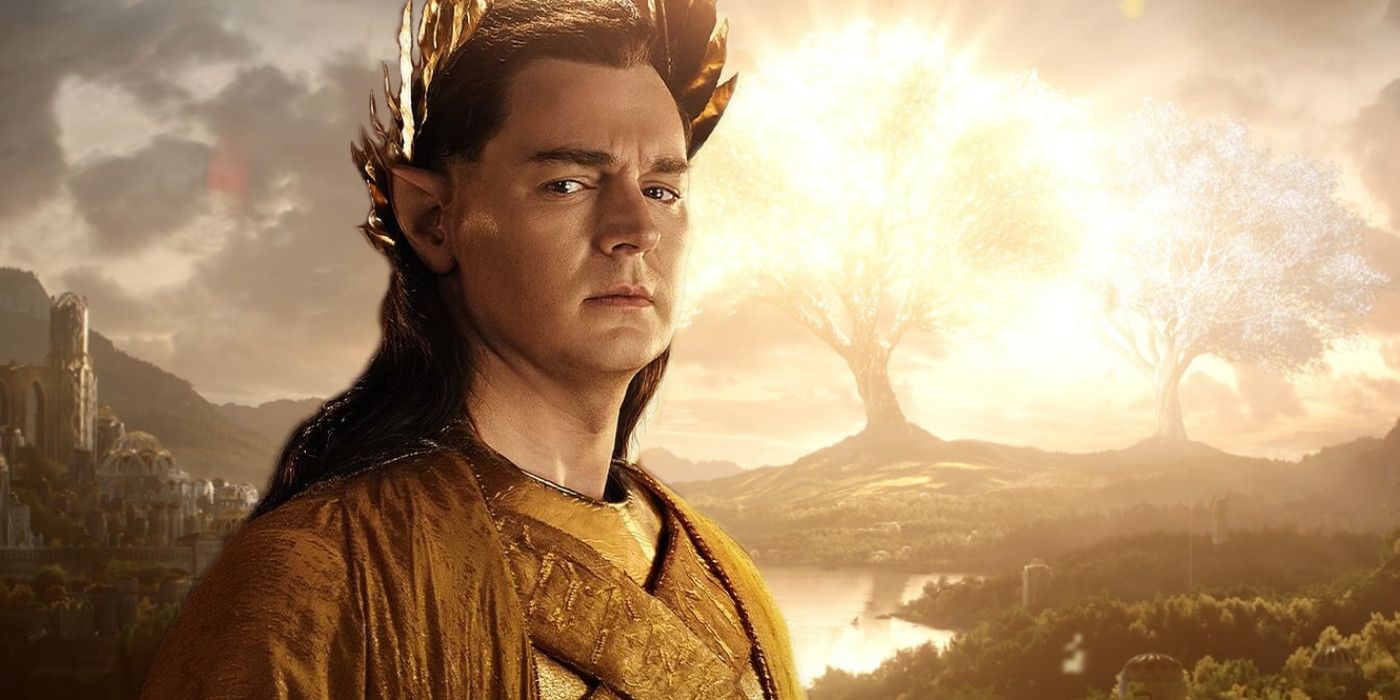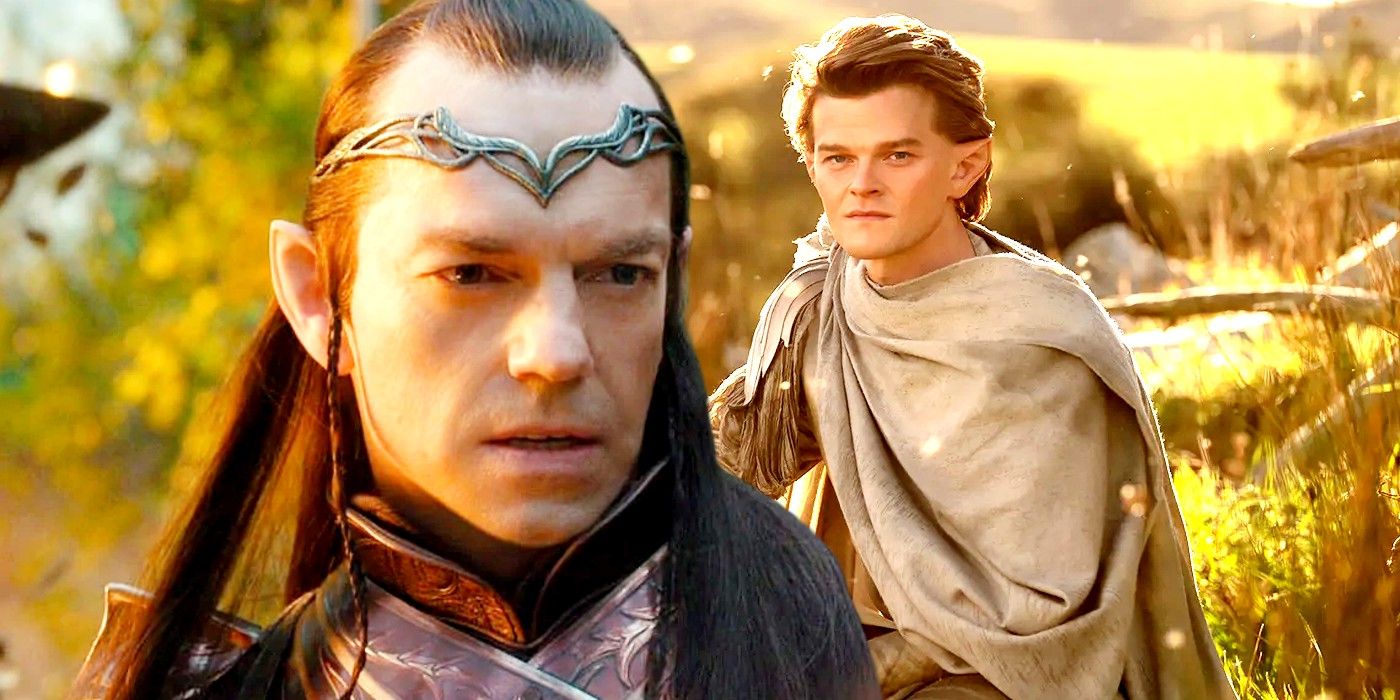The Lord of the Rings: The Rings of Power has introduced the High King of the Noldor, Gil-galad, which has caused some speculation as to why the elves in the original The Lord of the Rings trilogy lack a high king. The Rings of Power has received mixed reviews as it builds a world with a much different feel than either Peter Jackson's movie trilogy or J.R.R Tolkien's original novels. The elves in The Rings of Power display a number of differences from the elves in Peter Jackson's The Lord of the Rings trilogy, but the former's lack of a high king is particularly notable.
The world created by Tolkien is enormously complex, and the elves are one of the most complicated races. The elves in The Rings of Power are full of tension because of warnings from the High King Gil-galad about the light of the Eldar fading. However, they are as yet unaware that Gil-galad will be the last High King of the Noldor after he eventually dies in battle against Sauron.
Why Gil-galad Is The Last Elven High King
Gil-galad is the last Elven High King in large part because he dies childless and as the last male-line descendant of Finwë, the first High King of the Noldor. Moreover, while there are some living elves who could still have made a claim to the kingship based on their blood, such as Elrond, the elves' population had already dwindled so much that it probably made more sense to simply follow regional rulers. So, instead of coming together under a new high king, Galadriel rules as the Lady of the woods of Lothlórien alongside her husband, Celeborn Lord of the woods of Lothlórien, and Elrond rules as Lord of Rivendell.
Tolkien's wider world explores thousands of years of Elf lore, yet he never specifically states why Gil-galad was the last High King of the Noldor. It is therefore safe to assume that it was a combination of Gil-galad's lack of an heir and the elves' shrinking need for a high king that led to the regional split. The dwindling of the elves is a constant theme in Tolkien's trilogy, and it makes sense that they would recognize their limited population no longer required a high king, especially after nearly every High King of the Noldor died a violent death.
Why Elrond Had A Claim To Gil-galad's High King Title
Elrond had the best claim to the title of High King after the death of Gil-galad in large part because he was so deeply respected by his race and had been the closest adviser to the former king (despite Gil-galad's Rings of Power insult). Moreover, he was related to the house of Finwë through his grandmother. Granted, the title of High King had only ever been passed down the male line, but Elrond was unlikely to need his claim through blood because of how popular and respected he already was.
Ultimately, Elrond was wise to choose not to claim the title of High King of the Noldor. It is impossible to say how The Lord of the Rings trilogy would have changed if Elrond had claimed the crown, however, most of the elves who claim that title die a premature death, so it was probably a good decision by Elrond. The elves had no more need of a high king and Elrond recognized that his claim would do naught but feed his vanity.



